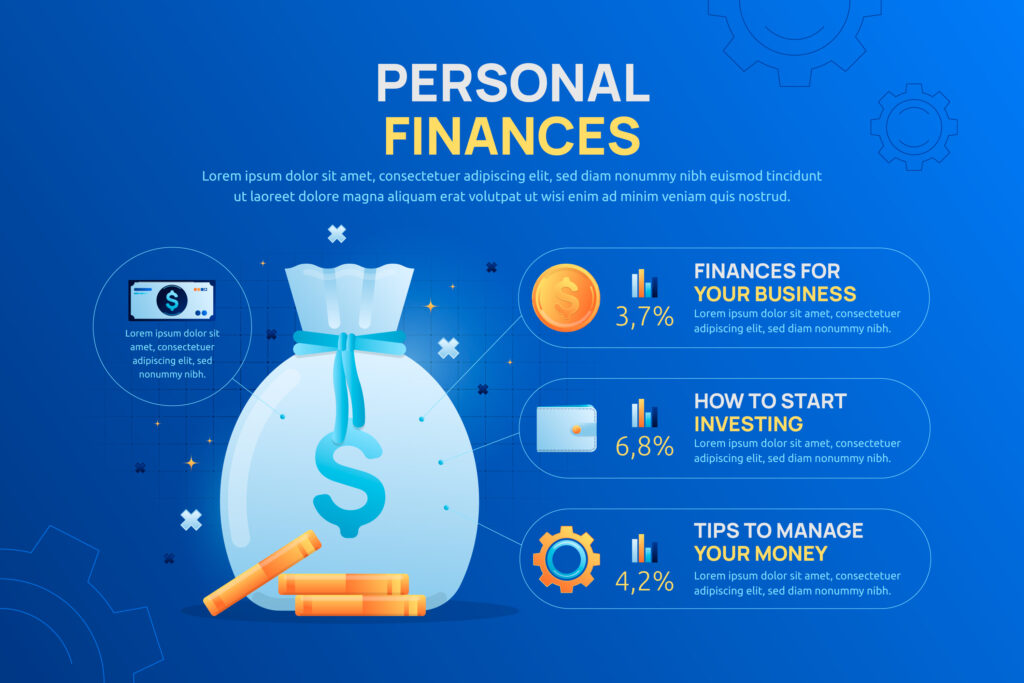
Let’s face it — money can be confusing, stressful, and even a little scary sometimes. You work hard to earn it, but somehow, it always seems to vanish before the month ends. Sound familiar?
Don’t worry — you’re not alone. The truth is, most of us were never taught how to manage money properly. We picked up random advice from parents, friends, or social media, and tried to figure it out on our own. Some of it worked. A lot of it didn’t.
But here’s the good news: managing money smartly isn’t about being rich, having a finance degree, or obsessing over every rupee. It’s about making small, consistent choices that help you feel more in control and less anxious about your future.
Let’s break it down in real, honest terms — no jargon, no fluff.
1. Know Where Every Rupee Goes

This is step one—and probably the most eye-opening.
For one month, track everything you spend. Yes, even the ₹50 chai and the ₹120 food delivery fee. You don’t need a fancy app — just use your phone notes or a piece of paper.
At the end of the month, you’ll see patterns. Maybe you’re spending more on takeout than you realized. Maybe subscriptions you forgot about are eating into your income. The point is not to judge yourself — it’s to understand.
Because when you know where your money goes, you can start telling it where to go instead.
2. Set Up a Plan That Actually Works for You

I know, I know — the word “budget” makes most people yawn. But think of it more like a spending plan — something you create to give yourself freedom, not restriction.
Here’s a simple breakdown:
- 50% for needs (rent, groceries, bills)
- 30% for wants (eating out, shopping, hobbies)
- 20% for goals (savings, investments, debt repayment)
These aren’t rigid numbers — adjust them based on your reality. The goal is to make sure your spending reflects what actually matters to you.
3. Pay Yourself First

This one habit changed everything for me personally.
Most people save whatever’s left after spending. But let’s be real — usually, there’s nothing left. Instead, flip the script: the moment your salary hits, move a fixed amount to savings first, then spend what’s left.
Even if it’s just ₹500 or ₹1000 per month, it builds discipline. Over time, it adds up. And you’ll feel so much more confident knowing you’re not living paycheck to paycheck anymore.
4. Start Building a ‘Just in Case’ Fund

Life happens. Your car breaks down. Your phone screen cracks. A health emergency comes up. These things suck — but they suck even more when you’re not prepared.
Start a small emergency fund. Even ₹5,000 to ₹10,000 in a separate savings account can give you peace of mind. Keep it untouched unless it’s a true emergency.
Think of it like an umbrella. You hope you never need it — but when it rains, you’ll be so glad you have it.
5. Get Rid of Debt — One Step at a Time

Debt feels heavy. It sits on your shoulders and whispers in your ear every time you want to enjoy something. But you can get out of it.
Start with a list of all your debts. Don’t panic. Just face it head-on.
Pick one — maybe the smallest one (for quick wins), or the highest-interest one (to save money). Pay extra toward that while making minimum payments on the rest.
As each debt disappears, your confidence will grow. You’ll breathe a little easier. And your future self will thank you.
6. Don’t Fall for Lifestyle Traps

Ever notice how every time your income goes up, your expenses somehow go up too?
It’s called lifestyle inflation, and it’s sneaky. A raise turns into new gadgets, more dining out, and maybe a pricier apartment. Suddenly, you’re making more but still feeling broke.
Instead, every time your income increases, challenge yourself: Can I increase my savings rate before my spending? That’s how real wealth is built.
7. Use Tools — But Don’t Depend on Them

There are tons of apps and tools out there to help you budget, track spending, invest, and plan. Use them! But remember: you are the driver, not the app.
No tool can make you care about your future more than you do.
So whether it’s a notebook, a Google Sheet, or a budgeting app — use whatever feels easiest. The goal is to stay consistent, not perfect.
8. Be Kind to Yourself Along the Way

You’ll mess up. You’ll overspend some months. You might forget to save. That’s life.
But don’t let one mistake become a downward spiral. Get back on track the next day. Celebrate small wins. And remember: your relationship with money is like any relationship — it takes time, effort, and care.
Final Thoughts: You’re Not Behind. You’re Just Getting Started.
If you’ve read this far, you’re already ahead of most people. Why? Because you care. You’re trying. And that matters more than you think.
Smart money management isn’t about being perfect or rich — it’s about being aware, intentional, and honest with yourself.
Start small. Stay consistent. Ask questions. Make mistakes and learn from them. And most of all — keep going.
Because your money shouldn’t control you. You should control your money.
